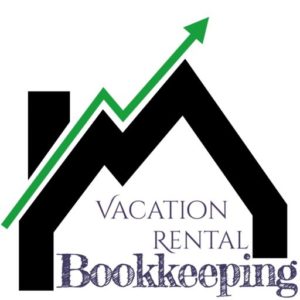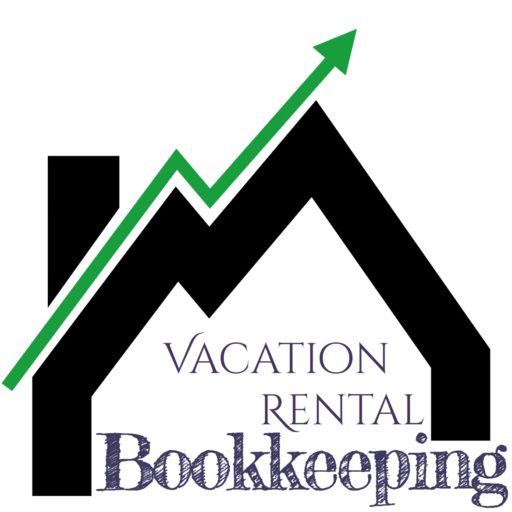1. Consider What Type of Business You Are
Sole Proprietor . . . Partnership . . . LLC . . . S Corporation ???
Many vacation rental businesses are registered as sole proprietorships simply because that is the default type of business if nothing else is chosen. My purpose is not to give legal advice or to recommend a particular type of business, but to encourage you to think through the decision instead of just accepting the default option. This is a legal matter and thus should be made after consulting with the proper legal counsel.  Some general pros and cons to consider would include the complexity, the cost, the tax ramifications, and the privacy and liability of the owner. In general, sole proprietorships and partnerships tend to be simpler and less costly, but they can put the owner’s personal assets at risk in the case of a lawsuit against the business. LLCs and corporations involve more paperwork and fees but offer protection of the owner’s personal assets. Your attorney and CPA can help you make a wise decision on the matter. The important thing is that you take the time to consider which scenario is best for you and your business.
Some general pros and cons to consider would include the complexity, the cost, the tax ramifications, and the privacy and liability of the owner. In general, sole proprietorships and partnerships tend to be simpler and less costly, but they can put the owner’s personal assets at risk in the case of a lawsuit against the business. LLCs and corporations involve more paperwork and fees but offer protection of the owner’s personal assets. Your attorney and CPA can help you make a wise decision on the matter. The important thing is that you take the time to consider which scenario is best for you and your business.
2. Find a Friend in the VR Business
When my wife and I started our vacation rental business, there were so many times that it would have been helpful to be able to talk to someone who knew what we were going through. The vacation rental business is unlike any other, and it can be hard to find that person that understands and can help. We found ourselves spending hours reading online forums trying to get our questions answered. One day we were contacted by another owner in our city. We met for dinner and had a great time comparing stories and bouncing ideas off of each other. While you may view the other owners in your area solely as competition, they can be a great help to you if you reach out to them in a way that shows you want to help. One day our rental had a problem the day guests were coming. There was no way to fix the problem in time but we were able to call our friends and send our guests to their rental. What could have been a major problem ended up working out well. Our guests were impressed that we were able to accommodate them despite the circumstances. Be a friend and gain a friend. You never know what the benefits will be.
One day we were contacted by another owner in our city. We met for dinner and had a great time comparing stories and bouncing ideas off of each other. While you may view the other owners in your area solely as competition, they can be a great help to you if you reach out to them in a way that shows you want to help. One day our rental had a problem the day guests were coming. There was no way to fix the problem in time but we were able to call our friends and send our guests to their rental. What could have been a major problem ended up working out well. Our guests were impressed that we were able to accommodate them despite the circumstances. Be a friend and gain a friend. You never know what the benefits will be.
3. Respond to Guest Reviews
Reviews can make or break any vacation rental. As an owner, it is very important to devote some of your attention to what your guests are saying. Whether the review is good, bad, or indifferent, you need to take the time to offer a reply. Guest take time out of their busy schedule to write them, and a thoughtful owner will acknowledge the sacrifice by responding in a timely fashion. If the review was good, your response will reaffirm to the guest how much they enjoyed their experience with your rental and it will show potential guests that the owner of this rental cares about guests and is personable. If the review is not good, the response can be more difficult, but it is still important.  A response to a bad review should acknowledge that you are sorry the guest did not have the best experience and let them know that you will take their comments into consideration. Your response may help the situation with the guest, but more importantly, it will show potential guests that you care about your guest’s experiences. Never argue or speak harshly in your response. Potential guests will surely be turned off by an owner who they perceive will not be helpful. Lastly, make changes when they are warranted. You may disagree with a bad review, but usually, there is at least a little truth in the review that can help you make your rental better. If you do not make the necessary changes and the same issue comes up in another review, your future bookings will start to suffer.
A response to a bad review should acknowledge that you are sorry the guest did not have the best experience and let them know that you will take their comments into consideration. Your response may help the situation with the guest, but more importantly, it will show potential guests that you care about your guest’s experiences. Never argue or speak harshly in your response. Potential guests will surely be turned off by an owner who they perceive will not be helpful. Lastly, make changes when they are warranted. You may disagree with a bad review, but usually, there is at least a little truth in the review that can help you make your rental better. If you do not make the necessary changes and the same issue comes up in another review, your future bookings will start to suffer.
4. Do Not Compromise
Making each guest feel that they are getting personal service from the property owner can be very helpful to your business; however, some guests will try to take advantage of the personal touch you offer. There are some policies that you need to set and stick to no matter who the guest is. If you have decided not to allow pets, do not let one guest change your mind. It would be unfair to advertise your rental as pet-free if you do not stick to that policy. Set your occupancy number and stick to it.  Allowing more guests to come to your house than it can comfortably house is sure to cause problems. No matter how much they say they are willing to squeeze in, they will most likely not enjoy their stay; cause extra work for the cleaner, and possibly leave you a bad review when it’s all over. Price is another area that guests love to try to negotiate. Some owners feel that if they do not give in to these demands, they will not get bookings. If a guest wants a low price for a time of year that you never get bookings, you might consider less money is better than no money, but otherwise, stick to your price. You should have a well-thought-out price that is fair and you should not be expected to take less. Quite often you will find that guests who refuse to stay unless you lower your price will continue to expect other favors and cause you headaches. Why not rent to someone who is willing to pay your asking price and who will be happy with your rental instead? Requiring a rental agreement is another policy that you should never change. One time we rented our house to some distant relatives and figured we did not need a rental agreement. When my wife went to clean the house on the day they were to check-out, she found that they thought they had the rental for one more day. We were able to work out the situation but a rental agreement would have avoided the problem in the first place. Lastly, you should not compromise on the policies within the rental agreement. If you do not intend to enforce them, they probably should not be there. Giving in on one policy essentially tells the guest that they do not have to follow any of the others. While being strict on certain parts of the business may not be fun, it is important. Sometimes you just have to be upfront and tell people that you have to stick to your policies to be fair to everyone. Yes, sometimes you may lose a booking but most likely it will be replaced by one that is even better.
Allowing more guests to come to your house than it can comfortably house is sure to cause problems. No matter how much they say they are willing to squeeze in, they will most likely not enjoy their stay; cause extra work for the cleaner, and possibly leave you a bad review when it’s all over. Price is another area that guests love to try to negotiate. Some owners feel that if they do not give in to these demands, they will not get bookings. If a guest wants a low price for a time of year that you never get bookings, you might consider less money is better than no money, but otherwise, stick to your price. You should have a well-thought-out price that is fair and you should not be expected to take less. Quite often you will find that guests who refuse to stay unless you lower your price will continue to expect other favors and cause you headaches. Why not rent to someone who is willing to pay your asking price and who will be happy with your rental instead? Requiring a rental agreement is another policy that you should never change. One time we rented our house to some distant relatives and figured we did not need a rental agreement. When my wife went to clean the house on the day they were to check-out, she found that they thought they had the rental for one more day. We were able to work out the situation but a rental agreement would have avoided the problem in the first place. Lastly, you should not compromise on the policies within the rental agreement. If you do not intend to enforce them, they probably should not be there. Giving in on one policy essentially tells the guest that they do not have to follow any of the others. While being strict on certain parts of the business may not be fun, it is important. Sometimes you just have to be upfront and tell people that you have to stick to your policies to be fair to everyone. Yes, sometimes you may lose a booking but most likely it will be replaced by one that is even better.
5. View Your Rental as a Genuine Business
For some reason, there seems to be a trend to not view vacation rentals as legitimate small businesses. People, especially those outside the industry, tend to see rentals as hobbies or side hustle to make a little extra money.  Maybe others perceive rentals this way because owners often work other jobs or because people do not understand how much work goes into a rental. Whatever the reason, you need to make sure you see yourself as a business owner no different than other business owners in your area. Your business requires lots of work, marketing, customer service, organization, office work, creativity, attention to detail, money management, compliance to government regulations, and so much more. Do not ever think of yourself or your business as second rate. If you view yourself as a professional and an expert your guests will pick up on your attitude and want to do business with you rather than an owner who acts as if their rental is not special. You are providing a great service and should be proud of what you do!
Maybe others perceive rentals this way because owners often work other jobs or because people do not understand how much work goes into a rental. Whatever the reason, you need to make sure you see yourself as a business owner no different than other business owners in your area. Your business requires lots of work, marketing, customer service, organization, office work, creativity, attention to detail, money management, compliance to government regulations, and so much more. Do not ever think of yourself or your business as second rate. If you view yourself as a professional and an expert your guests will pick up on your attitude and want to do business with you rather than an owner who acts as if their rental is not special. You are providing a great service and should be proud of what you do!
Brought to you by…

Ryan Gallagher is a bookkeeper who specializes in providing accounting services to vacation rental owners and managers. He strives to take the burden of bookkeeping off of business owners as well as help them stay on top of their finances, set and meet goals, and make their rentals the best they can be.
Please visit our website or contact Ryan directly if he can be of any help to you.
www.vacationrentalbookkeeping.com
